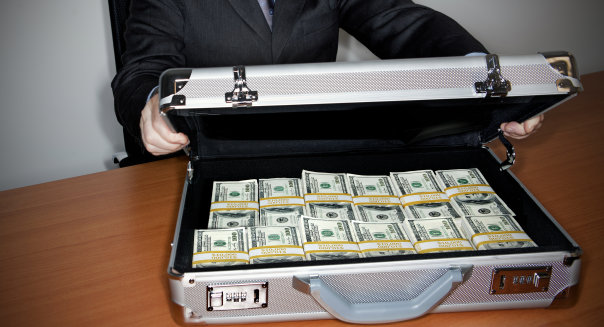
• The U.S. government may have its problems, but at least we’re honest: According to anti-corruption watchdog Transparency International, the U.S. and Germany are the most active at enforcing rules prohibiting multinational companies from using bribes in foreign countries. By comparison, half the world’s top exporters do little or nothing to stop their businesses from greasing the wheels with baksheesh.
• Speaking of international business, the United States is still hoping to complete the ambitious Trans-Pacific Partnership trade pact by year’s-end. The up side: It would create a 12-nation free-trade bloc stretching from Vietnam to Chile covering 800 million people, tear down trade barriers, and set standards for workers’ rights, environmental protection and intellectual property rights. The down side: It would give big corporations unprecedented powers to challenge national policies in the name of free trade.
• Turns out, the Aflac duck is huge in Japan. Evidently, the Japanese are deeply worried about serious illness, which dovetails nicely with Aflac’s supplemental insurance business model.
• The new $100 bills start arriving today, laden with a host of new anti-counterfeiting measures, from holographs to microprinting. Check out Ben’s new look.
• Telecom equipment maker Alcatel-Lucent announced Tuesday it would cut 10,000 jobs worldwide — nearly one out of every seven employees — in what its CEO called a last chance to turn the company around. About 2,100 of those cuts will hit the Americas. But it’s not just about job cuts: There’s a method to the badness.
• And finally, Peter Higgs of Great Britain and Francois Englert of Belgium won the Nobel Prize for physics Tuesday for predicting the existence of the Higgs boson particle, which explains why matter has mass. (What do you mean, that has nothing to do with business, money, or finance? Well, if there were no Higgs bosons, there would be no planets, people, money, or retirement to save for. Thus — no Higgs bosons, no Big Business.)


Leave a Reply